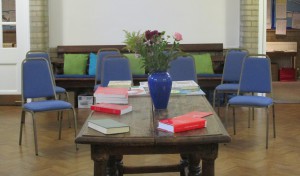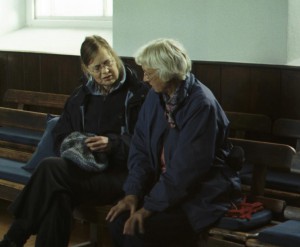As of first day of first month this year I have been an appointed elder of Luton & Leighton Area Meeting. In over 30 years worshipping with Quakers this is the first time I’ve been formally appointed to the role (though all in the worshipping group have responsibility for the right holding of meeting for worship). This has led me to think about the responsibilities this entails, and to explore this with the others appointed to this role in my Local Meeting.

Most people attending meeting for worship more than once will be aware that it is usually elders who close the meeting by shaking hands. People are also aware that the elders may reprimand (‘elder’) someone for speaking inappropriately during worship. They might, perhaps, say that elders are responsible for the ‘spiritual nurture of the meeting’ or words to that effect.
Quaker Faith and Practice 12.12 has a long list (a-l) of the responsibilities of elders – it is quite daunting.
The first item speaks of upholding and praying for the members of the local meeting. My meeting has about 100 people actively involved (40-50 attending on any given first day morning) and only 4 appointed elders, so this alone is quite a big task – just trying to remember that many people is a challenge.
Also daunting is that this is an Area Meeting appointment and carries responsibilities for the right holding of meetings for worship appointed by the AM – for business, for solemnisation of marriage, for funerals and for other purposes from time to time – though this is, of course, shared with a wider group of fellow elders
In Watford we have inherited a good pattern of opportunities for learning and spiritual nurture – monthly shared lunches followed by a variety of speakers and/or discussions, a twice monthly bible study group, a monthly enquirers’ meeting, a monthly light group and a twice monthly upholding group, with occasional Saturday workshops as well. But in a meeting as big as ours there is room for more. And scope for experimenting, not for complacency.
So I’m a bit daunted by the enormity of the task, but I’m much encouraged by the enthusiasm and open-mindedness of our local elders (tempered by an awareness that over-stretching ourselves won’t help anyone).
I’m also comforted by some of the detail in that long list of responsibilities – 12.12 d ‘to be responsible … for the arrangement of seating …’ – that I can understand the importance of, and can do.





